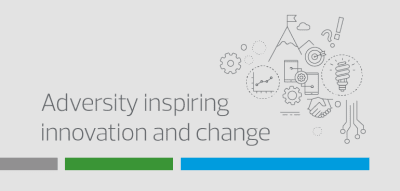Key takeaways:
As RSM’s Regional Leader for Asia Pacific, Stephen is a seasoned veteran of the Asia Pacific professional services market. Originally from Australia, he has worked in Hong Kong, Thailand, and Indonesia at different points in his career. Looking forward to 2030 Stephen discusses how Asia Pacific can leverage its market position and unique expertise.
Having worked in this profession for most of my professional life, if there is one thing I have learnt, it is that success begins and ends with visionary, humane and ethical leadership.
Many industries, including the accountancy profession, need to be dynamic, as businesses are increasingly under stress, from the regulators, customer or client demands, the war for talent and shifting expectations of employees and rapid changes within the technology. In the business world, it takes exceptional leadership to navigate this dynamic landscape and effect sustainable growth.
How businesses can navigate uncertainty and position for growth in Asia Pacific
The Asia Pacific region faces significant challenges in the coming years. While the region is a key driver of global growth, economic headwinds are hindering this growth. There are still ongoing issues with inflation, debt, supply chains, resourcing and staffing from the aftermath of the COVID-19 pandemic - although it may seem like a distant memory now. While many economies in Asia Pacific have avoided outright recession, these issues have contributed to weaker growth in the region. On top of this, the global energy crisis has hit areas of APAC, and this has contributed to a climate of weak investment in renewable energy and a turn back to fossil fuels.
From a professional point of view, what we are seeing on the ground is that businesses in the middle market will increasingly need the skillsets of accountants and consultants to help them navigate these risks and uncertainties. While there has been some disruption and turbulence in recent years, all signs point to APAC having a strong growth outlook. There will still be challenges to overcome but these are not insurmountable if business leaders collaborate with their advisers to develop tailored pathways to weather this period of economic instability and turn uncertainties into advantages.
What this requires is bold thinking and an analytical mindset. Watching for trends not only in the region, but globally, can help shape long-term planning of innovation, technology adoption, risk, and opportunity management to inform and short-term decision-making.
ESG challenges faced by companies in Asia Pacific
The Asia Pacific region faces further challenges in responding to increasing pressures from Environmental, Social and Governance (ESG) due to its cultural and economic diversity. As such, regulatory frameworks, and commitment to ESG practices, including ESG awareness and maturity, vary significantly across countries within the region. While countries such as Australia, Japan and Singapore have advanced ESG frameworks in place and mandatory reporting, many others are in the early stages. As such, companies operating across multiple countries will struggle to navigate this complexity while maintaining environmental and social standards consistent with local regulatory requirements.
These new non-financial reporting requirements will further impact companies in the supply chain of those required to report in 2024 and beyond and are new additional pressures on the business world. Data capturing, collection, evaluation in addition to understanding reporting requirements and potential need for new technologies will cross all parts of the business, stakeholders and third parties in the supply chain.
It is great to see Asia Pacific’s ESG and Sustainability experts playing a key role in supporting clients on their path to creating lasting value and impact using RSM’s global ESG service methodologies.
The impact of ESG and the EU’s Corporate Sustainability Reporting Directive (CSRD) on Asia Pacific
Many companies have complex global supply chains, with some global businesses working in countries with little to no transparency, particularly around human rights issues, and environmental protection. This poses a risk to those that operate in markets with a higher level of scrutiny across the value chain, such as the activities of their suppliers and customers. With the Corporate Sustainability Reporting Directive (CSRD) in effect in Europe, companies in Asia Pacific supplying goods and services to the EU or with subsidiaries based in the EU, will face requests for data from companies within the scope of CSRD.
This region has some of the world’s fastest growing economies. With the current energy mix in the region, this results in growth in fossil-fuel use for energy and raw material production, particularly in developing nations. Balancing economic imperatives with sustainability goals will make it increasingly challenging for certain countries to transition away from fossil fuels and achieve net-zero emissions targets, aligning with international priorities like the Paris Agreement. RSM ESG and Sustainability advisers are already supporting businesses within the region to proactively navigate the risks and also unlock strategic insight which can create efficiencies and add value to their business through sustainability.
However, the winds of change shift, this region has the good fortune of being blessed with a young demographic, across South Asia (India, Pakistan, and Bangladesh) and the strength of 600 million people across Southeast Asia, alongside the maturity of Japan, Korea, Australia, and New Zealand. China is, and will continue to be, an economic powerhouse, with an annual GDP the envy of the developed world.





